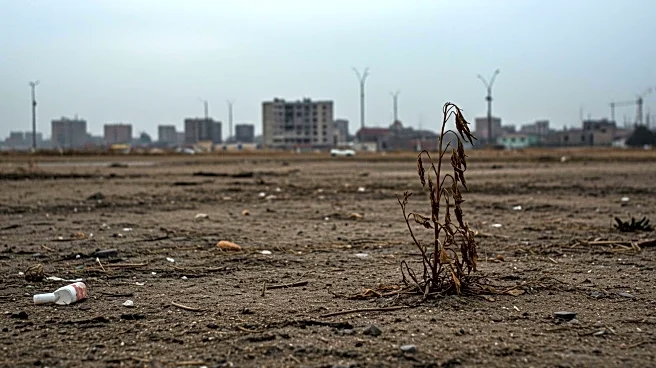What's Happening?
The Integrated Food Security Phase Classification (IPC) has declared a famine in Gaza City, marking the first such determination in the Middle East. The IPC warns that the famine could spread to other areas like Deir al-Balah and Khan Younis if a ceasefire and unrestricted humanitarian aid are not implemented. The report attributes the crisis to Israel's military actions and restrictions on aid, which have led to severe food shortages and malnutrition among Palestinians. Israeli Prime Minister Benjamin Netanyahu has dismissed the report as false, asserting that Israel does not have a policy of starvation. Despite Israel's claims of increased aid deliveries, the United Nations and other organizations argue that the aid is insufficient to meet the needs of the population.
Why It's Important?
The famine declaration in Gaza City highlights the severe humanitarian crisis resulting from prolonged conflict and restricted aid. This situation has significant implications for international relations and humanitarian efforts, as it increases pressure on Israel to alter its policies. The crisis affects over half a million people in Gaza, with many at risk of dying from malnutrition-related causes. The international community, including the United Nations, has called for immediate action to prevent further deterioration. The situation underscores the complex interplay between military objectives and humanitarian needs, raising ethical and moral questions about the conduct of war and the protection of civilians.
What's Next?
The IPC's report is likely to intensify international scrutiny and calls for a ceasefire and increased humanitarian access. Israel may face mounting diplomatic pressure to allow more aid into Gaza and to reconsider its military strategies. Humanitarian organizations are expected to continue advocating for increased support and intervention to address the crisis. The situation may also influence broader geopolitical dynamics in the region, potentially affecting peace negotiations and international relations.
Beyond the Headlines
The famine in Gaza City raises broader ethical and legal questions about the responsibilities of warring parties to protect civilian populations. It also highlights the challenges of delivering aid in conflict zones, where logistical and security issues can impede humanitarian efforts. The crisis may prompt a reevaluation of international humanitarian law and the mechanisms for enforcing it, as well as discussions about the role of international organizations in conflict resolution and humanitarian assistance.









